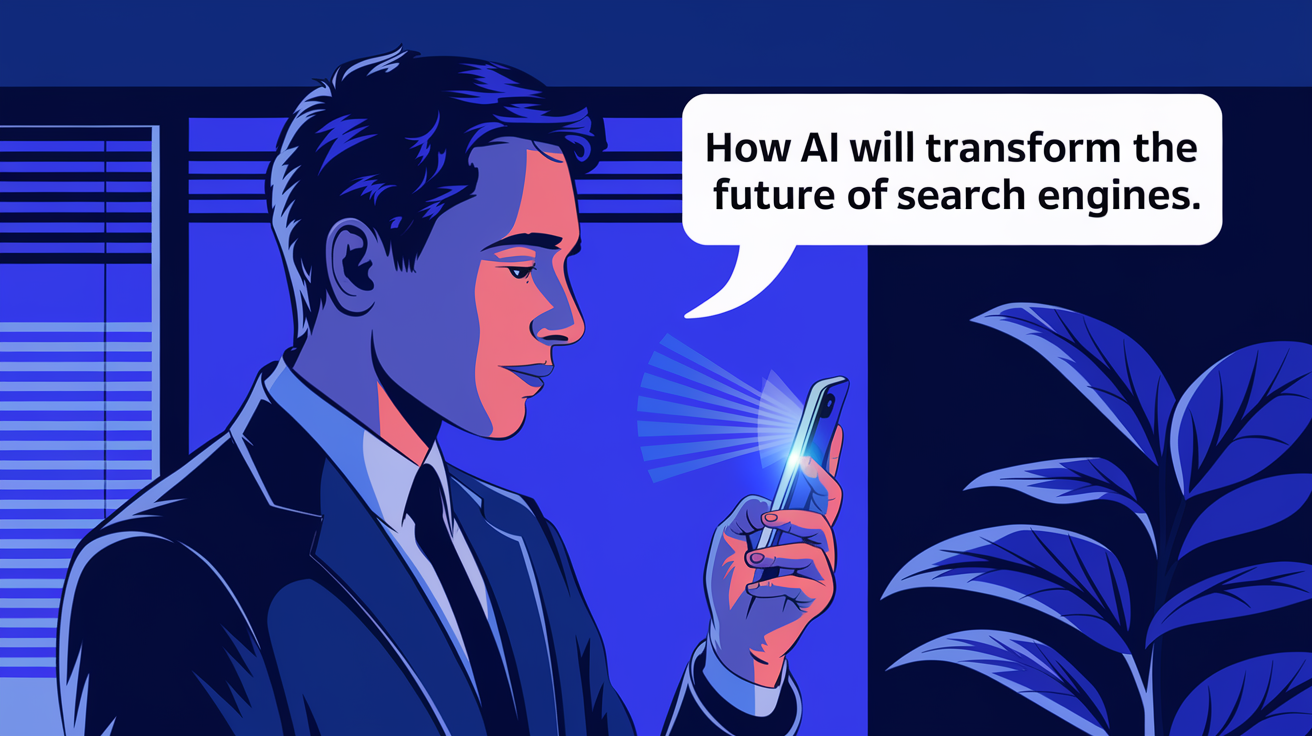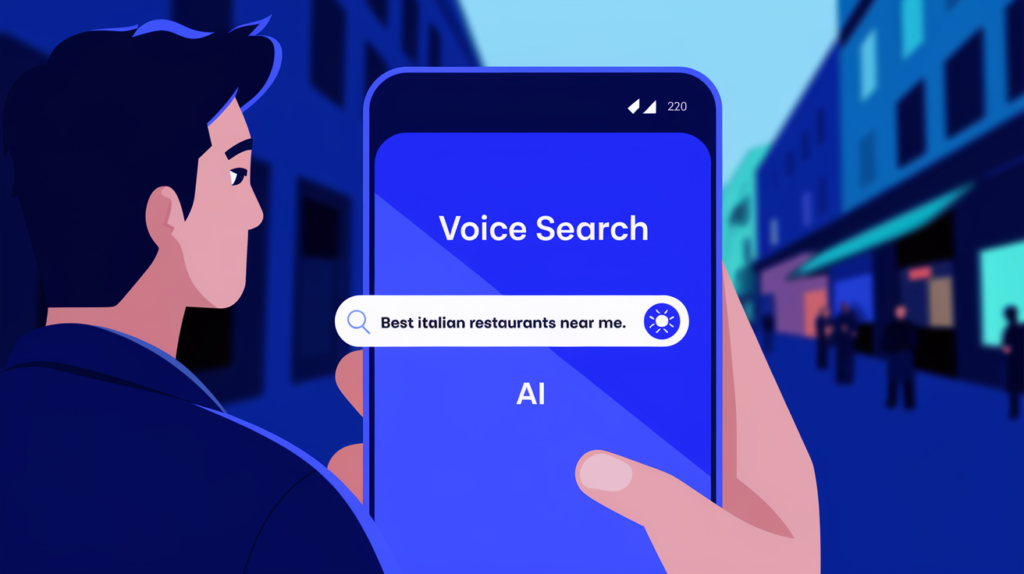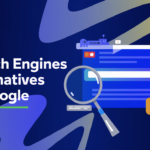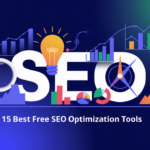How AI Will Transform the Future of Search Engines
Hey there! Let’s talk about something super exciting in the world of digital marketing: Artificial Intelligence (AI). If you’ve been keeping an eye on trends, you know that AI isn’t just some tech buzzword anymore; it’s shaking up how we do SEO and how search engines work.
Remember when SEO was all about cramming in as many keywords as you could? Yeah, those days are gone! Nowadays, we’re shifting toward AI-driven strategies that focus on what users really want and need. It’s all about delivering the right content at the right time—think personalized experiences that make your audience feel like the search engine really gets them.
According to a recent Statista report, the AI market is set to explode to around $126 billion by 2025! That’s some serious growth, and it shows just how much AI is being woven into our daily digital lives, especially in search technology. Imagine search engines that not only understand your queries but can also anticipate your needs before you even hit “search.” Pretty wild, right?
As marketers and content creators, it’s time to embrace this shift and get savvy with AI. Let’s explore how this technology is transforming the search landscape, from grasping user intent to optimizing our SEO strategies for maximum impact. Ready to dive in? Let’s go!
The Evolution of Search: Prioritizing User Intent
From Keywords to User Intent
The world of search engines has evolved dramatically, shifting from traditional keyword-based searches to a more sophisticated, user intent-driven approach. This change is crucial as it reflects a deeper understanding of what users truly want when they enter a query. Today, it’s not just about matching keywords; it’s about interpreting the contextual queries behind those words.
The Importance of Understanding Search Behavior
Understanding search behavior is vital. Users are searching for information, products, or services that solve their specific problems or fulfill their needs. By prioritizing user intent, search engines can deliver more relevant results, enhancing the overall user experience (UX). This means that instead of bombarding users with a list of links that merely contain their search terms, search engines now analyze factors like search personalization and search engine algorithms to present content that resonates with the user’s true intent.
Explore Further
For those looking to explore this topic further, check out the insightful article by Search Engine Journal on AI and the Future of SEO. Additionally, if you’re curious about the foundational concepts of user intent, don’t miss my article on What is Search Intent and Why is it Important for SEO?. These resources will help deepen your understanding of how user intent is shaping the future of search.
Embracing Semantic Search
What is Semantic Search?
Semantic search is a game-changer in the world of search engine optimization (SEO). Unlike traditional search methods that rely heavily on exact keyword matches, semantic search focuses on understanding the meaning and context behind a user’s query. This means that search engines are now equipped to interpret not just the words typed into the search bar but the intent behind them. In essence, semantic search aims to deliver results that align more closely with what users truly seek, enhancing the relevance of search outcomes.
The Role of AI in Semantic Search
Search engines like Google leverage artificial intelligence (AI) to enhance their semantic search capabilities. AI algorithms analyze a multitude of factors—including user behavior, content quality, and context—to ensure that search results meet users’ needs more effectively. By utilizing AI, search engines can interpret nuances in language, such as synonyms and variations of phrases, which leads to more accurate and contextually relevant results.
The Significance of Long-Tail Keywords and NLP
In this new semantic landscape, long-tail keywords have become increasingly significant. These phrases, typically longer and more specific than standard keywords, capture user intent more accurately and often lead to higher conversion rates. Additionally, Natural Language Processing (NLP) plays a crucial role in this process. NLP allows search engines to understand the complexities of human language, making it easier to connect users with the most relevant information.
Explore Further
To gain a deeper understanding of how NLP impacts search, I recommend checking out HubSpot’s insights on AI in Digital Marketing. This resource provides valuable information on how AI technologies are reshaping not just search but the broader digital marketing landscape. By embracing semantic search and its principles, marketers can stay ahead of the curve in delivering content that resonates with their audience.
The Future Work of Search Engines
Evolving with AI
As we look ahead, the future of search engines is intertwined with the advancements in artificial intelligence (AI). Traditional search engines are undergoing a significant transformation, and AI is at the forefront of this evolution. One major aspect of this change is the enhancement of search algorithms. These algorithms will become increasingly sophisticated, allowing them to understand complex queries, user intent, and context in ways that were previously unimaginable. This shift will lead to more relevant and accurate search results, ensuring users find exactly what they are looking for.
Intuitive Search Experiences
Moreover, AI will facilitate more intuitive search experiences. Imagine interacting with search engines in a conversational manner, where you can ask questions in natural language and receive immediate, contextually relevant answers. This natural language processing (NLP) capability will make searching feel more like a dialogue rather than a task. Users will no longer need to think in keywords; instead, they can express their queries as complete thoughts. This intuitive interaction will cater to a wider audience, including those who may not be as tech-savvy.
Real-Time Data Integration
Another exciting development is the ability for search engines to integrate real-time data seamlessly. AI technologies can analyze vast amounts of information in real-time, ensuring that users receive the most current and relevant results. For example, if a user searches for “best restaurants near me,” AI can pull in live data regarding restaurant reviews, availability, and even trending dishes. This integration not only enhances the user experience but also provides businesses with a unique opportunity to reach potential customers when it matters most.
Explore Further
To dive deeper into the advancements shaping the future of search engines, check out the Google AI Blog. This blog offers valuable insights into the latest developments in AI technology, shedding light on how these innovations are transforming search capabilities. Staying informed on these changes will empower marketers and businesses to adapt their SEO strategies and optimize for the next generation of search technology.
How AI Will Impact Google Search
Transforming Search Algorithms
Artificial Intelligence (AI) is set to significantly transform Google Search, particularly through the enhancement of search algorithms. With advancements in machine learning and natural language processing, Google can better understand the nuances of human language, leading to more accurate and relevant search results. This means that searches will no longer be solely based on matching keywords; instead, they will take into account the context and intent behind a query. This evolution will help users find exactly what they are looking for faster and more efficiently.
Personalized User Experiences
One of the most exciting aspects of AI’s impact on Google Search is the potential for personalized experiences. AI algorithms can analyze user behavior, preferences, and search history to tailor search results specifically to individual users. For example, if a user frequently searches for healthy recipes, Google will prioritize relevant content in their search results, creating a more customized browsing experience. This shift towards personalization not only enhances user satisfaction but also increases engagement, as users are more likely to click on results that align with their interests.
Anticipating User Needs
AI’s predictive capabilities allow Google to anticipate user needs better than ever before. By analyzing vast amounts of data, AI can identify trends and patterns that inform what users are likely to search for next. This proactive approach enables Google to deliver timely and relevant results, ensuring that users find the information they need, even before they realize they need it. Whether it’s suggesting related topics or providing direct answers to common questions, AI is transforming the search experience into a more intuitive and efficient process.
Example 2: Personalized Search Results

As AI technology continues to evolve, search engines are placing a stronger emphasis on personalization to enhance user experiences. Platforms like Google now analyze user behavior, preferences, and location to deliver tailored search results that align more closely with individual needs. This shift toward personalized search is powered by machine learning algorithms that adapt based on what users frequently search for or engage with.
For example, if a user regularly searches for vegan recipes, Google’s algorithms will learn this preference and begin prioritizing vegan-related content over other dietary options. This personalization ensures users receive more relevant search results, which improves overall user engagement and satisfaction. According to McKinsey, 71% of consumers expect personalized interactions with brands. This highlights the importance for businesses to leverage AI and predictive analytics in understanding their audience, enabling them to refine their content strategies and target their SEO efforts more effectively.
By using AI to analyze engagement metrics and user behavior, marketers can create content that resonates better with their target audience, ultimately driving search engine rankings and visibility.
Will AI Replace SEO?
The Rising Concerns
As Artificial Intelligence (AI) continues to make waves in the digital marketing landscape, many professionals are left wondering: Will AI replace SEO? This question has sparked considerable debate, particularly among SEO specialists and marketers. While AI brings impressive capabilities, such as automating data analysis and optimizing content strategies, there are legitimate concerns about its potential to supplant traditional SEO practices. Some fear that as AI tools become more sophisticated, they might diminish the need for human-driven SEO efforts, creating a future where algorithms dictate all aspects of search visibility.
Augmenting, Not Replacing SEO
However, the reality is that AI is more likely to augment than replace SEO. AI excels in handling vast amounts of data, identifying trends, and making recommendations based on user behavior. This allows SEO professionals to focus on higher-level strategies that require creativity, intuition, and human insight. While AI can optimize on-page elements and analyze keyword performance, it cannot replicate the unique perspectives and emotional intelligence that humans bring to content creation and strategy development.
Moreover, effective SEO is not just about keywords and algorithms; it’s about understanding user intent, crafting compelling narratives, and building authentic connections with audiences. These elements are rooted in human creativity and brand storytelling, aspects that AI cannot fully emulate. By leveraging AI as a tool, SEO specialists can enhance their strategies, improve efficiency, and deliver better results without sacrificing the essential human touch.
Emphasizing Human Creativity and Strategy
To thrive in an AI-driven landscape, marketers and SEO professionals should focus on blending AI’s analytical capabilities with their own creative strategies. This synergy can lead to more effective content marketing, improved user engagement, and higher search engine rankings. As AI continues to evolve, it will be crucial for SEO experts to adapt, learn, and innovate, ensuring that they remain relevant in a changing digital ecosystem.
Conclusion: Shaping the Future of Search with AI
As we stand on the brink of a new era in digital marketing, it’s clear that Artificial Intelligence (AI) is poised to transform the landscape of Search Engine Optimization (SEO) and user experiences in profound ways. From improving search algorithms to personalizing user interactions, AI offers a plethora of tools and capabilities that can elevate how we connect with our audiences. The shift from traditional SEO practices to AI-driven strategies is not just a trend; it represents a fundamental change in how we approach online marketing.
By harnessing AI technologies, marketers can glean deeper insights into user behavior, craft more relevant content, and ultimately enhance the overall user experience. The marriage of human creativity and AI analytics creates a powerful synergy that can lead to more effective digital marketing strategies. This is the future of search, where understanding user intent and leveraging data-driven insights will become increasingly essential for success.
We encourage you to embrace AI as a valuable tool in your digital marketing arsenal. By staying informed and adapting to these changes, you can not only enhance your SEO efforts but also position yourself ahead of the curve in an ever-evolving industry.
For more insights on AI, SEO, and emerging digital marketing trends, don’t forget to subscribe! Join us as we explore the transformative potential of AI and how it can shape your marketing strategies for years to come.




Pingback: What is Search Intent and Why is it Important for SEO? - digitigrowth.com